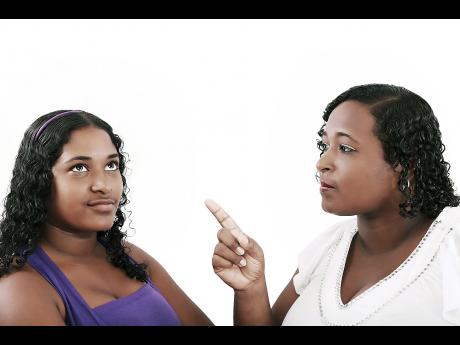Dealing with adult children who refuse to leave the nest
But if any provide not for his own, and especially for those of his own house, he hath denied the faith, and is worse than an infidel. 1st Timothy 5:8.
Your children are now adults. You have seen them through the worst - high school, some have even gone on to college. They are now out of school, still living in the family home, while you are still slaving away, paying all the bills with them showing no inclination to get a job.
Frustration is now settling in as no matter what you do, you just can't seem to impress on them the need to exert their own independence and if not leave the nest, then actively take steps to contribute to the bills in the house.
The above scenario is being faced by many families, with some even having to deal with grandchildren, with no financial support from their children.
Counsellor and Women's Ministry director at the Old Harbour Church of God of Prophecy, Eileen Osbourne, in agreeing that the situation is not uncommon, said that when an adult child refuses to leave the nest, with the expectation to be taken care of with no intention of actively seeking to take up his responsibility, it can weigh heavily on the parents.
"Every human being goes through a natural progression of development. In the stage of infancy, children depend on parents for practically everything, but by the time the child reaches adolescence moving up to adulthood, he craves less parental support and wants to make his own decisions on some matters. This, in a bid to be prepared for the demands of adulthood," she points out.
This natural progression, said Osbourne, can be obstructed if the parents are ill-advised even though their intention may be good. One such example, she shared, is doing for a child what the child can do for himself.
"The parent is blocking the natural progression of the child's road to independence. The child should be made to function at the appropriate stage of his life at any given time. It, therefore, follows that improper parenting could be a major factor contributing to prolonged dependence," she cautioned.
With the 'bad habit' already set in, Osbourne shared that even if that adult is thrust out of the nest, the same kind of expectancy may be carried over into other relationships that may be developed, be it with a spouse, co-workers or others.
Exercising tough love may have parents feeling guilty, but failure to do that, said Osbourne, could see them becoming resentful and angry with their child and even developing stress-related illnesses.
"The child who is an adult is responsible to take care of himself. If he is still living at his parents' house, he should contribute to the running of the house," she opined.
RIGHT VS PRIVILEGE
For parents who are caught in this situation, Osbourne said that it is not too late to do something about it. Her solution is to put new boundaries in place, where offspring are made aware that they do not have a right to be living in their parents' house; it is a privilege.
"The adult offspring should be educated about the negative effects of laziness. He should know that "idle hands bring poverty" Proverbs 4:10 and "If anyone is not willing to work, neither should he eat" 2 Thessalonians 3:10. The child should be encouraged to seek counselling to resolve any internal conflict that may be contributing to his dependent behaviour," are the sage words coming from Osbourne.
She said that parents who are now raising children to be independent adults should avoid playing the role of God in their lives by trying to ensure that they are always safe, thus not giving them adequate opportunity to make decisions and experience natural consequences.
"Offer the child choices so that his critical-thinking skills will be developed. Set boundaries; support growth. If the child offers to help wash the dishes, don't tell him he will not wash them clean enough; teach responsibility and set clear expectations.
Parents must plan for their own lives after the children leave the home, instead of doing anything to try to keep them their under their control with feelings of inadequacy," she noted.

